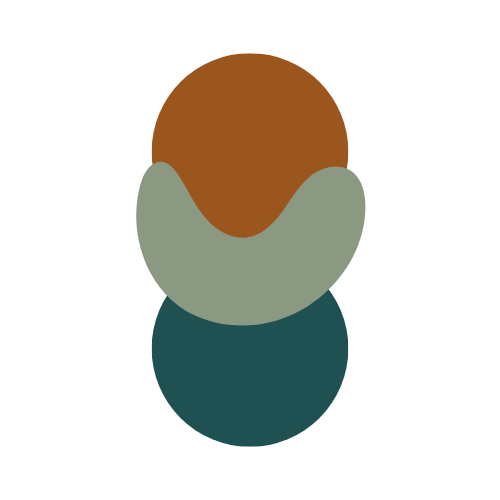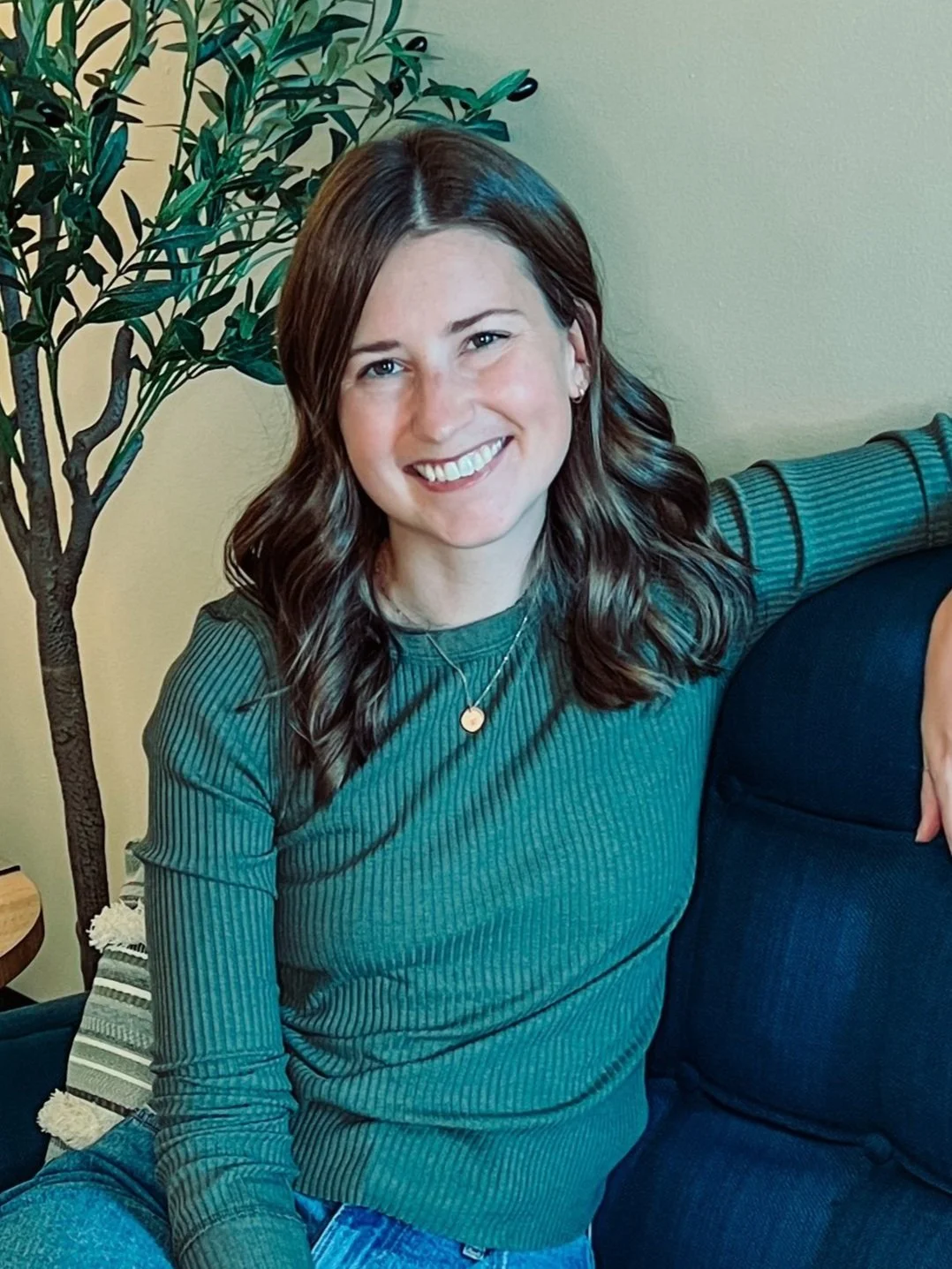What Is a ‘Cycle Breaker’ in Parenting - And How to Become One
Often, parents find themselves parenting differently than how they were raised. Maybe they want to allow more space for emotions than their parents did. Maybe they want to be more involved than their parents were. Maybe they want to be more accepting than their parents were.
Whatever it is, we learn a lot about how we want to parent, as well as how we do not want to parent, from our own upbringing. Wanting to do things differently than our parents did doesn’t necessarily mean that our parents did it wrong or that they are bad parents- but it may mean that there are some patterns we want to break.
If you’ve ever thought, “I don’t want to repeat the same patterns I grew up with”, you are not alone.
What are Generational Cycles in Parenting?
Generational cycles in parenting are patterns that are repeated from generation to generation. These may be cycles of emotional neglect, overly high expectations, lack of attunement, or abuse. As children, we learn about how to hold space for ourself, how to relate to others, and how to navigate the world from our own upbringing. Naturally, humans tend to continue and pass on the same beliefs and patterns that their parents held.
If your grandparents didn’t allow your parent to cry as a child, your parent may struggle identifying or coping with their own emotions. As a result, they may have learned to shove down their emotions- and- they probably had a hard time tolerating your emotions as a child. So, you in turn learned to shove down your emotions. Now here you are, as a parent, trying to figure out how in the world you can feel okay allowing your kids to have their own emotions.
It would make sense that you might struggle to tolerate your child’s emotions. You’re not a bad parent for struggling with this. It’s what you learned. And your parent isn’t a bad parent for struggling with your emotions- it’s what they learned too.
But, there’s something within you wanting to do things differently. You’re aware that you wanted more and deserved more from your parents. And you want to do more for your children. And you know what… you might even want to do more for you too.
What it Means to be a Cycle Breaker
To be a cycle breaker, we have to intentionally choose to do things differently. Even when it’s hard. Because trust me, it’s going to feel hard at times. Being a cycle breaker does not mean that you have to figure everything out, be the perfect parent, or know the “right” way to parent.
It means being reflective, curious, and willing to grow. It means identifying the values you want to connect to in parenthood, and continuing to practice trial and error in those values as you go.
Why it’s Hard
Breaking cycles of trauma, attachment wounding, abuse, or neglect is hard work. It requires us to do a lot of our own work- because we can’t break the cycle for our children if we haven’t begun breaking the cycle for ourselves first. In order to respond to our children differently, we need to internally respond to ourselves differently.
This means we need to get curious with our own pain points. What feels really uncomfortable for us? What triggers us to repeat the patterns? What beliefs about ourselves, our relationships, or the world might be holding us back?
It also means that we need to explore what how we want to respond to discomfort differently. If we find ourself snapping at our kids when things are chaotic at home, we’re most likely snapping at ourselves when things feel chaotic inside.
Breaking the Cycle Starts with Us
Before you jump on all of the “right” parenting strategies- let’s start with you. Let’s explore how these generational cycles show up for you so that you can break these cycles from the inside out.
Reflect on your childhood experiences
As a therapist, I’ve had many clients initially note that they had a “good” childhood later be able to identify moments of significant attachment wounding from their upbringing. Because here’s the thing, even great parents unintentionally cause pain for their children. So, take some time to dig deep and explore.
How did your parents respond to you when you expressed your emotions?
What were your family’s beliefs around “success” or the “right” way to do things?
What were some moments in which yo felt dismissed or as if you weren’t fully seen or understood?
What were patterns that felt painful for you?
Notice what shows up inside
How others treat us, especially in childhood, impacts how we view and treat ourselves. In order to be accepted or appreciated by our parents, we may have had to figure out a way of navigating our internal world in order to meet others needs. Some questions to reflect on here:
As a kid, how did you express or respond to your own emotions?
How did you feel about yourself when something bad or uncomfortable happened?
What messages did you tell yourself (and/or do you tell yourself now) about what makes you “good enough” or worthy?
How did you feel about yourself as a kid? How do you feel about yourself now?
Notice how you respond on the outside
Our own internal messages and responses influence how we respond on the outside world. If we feel like we are “too much” when we have an emotion, we may have started to distract ourselves on the outside world when we feel uncomfortable. If we feel like we are not “good enough” if things aren’t going the way we planned, we may try to overly-control our outside world in order to make it feel okay. Here are some questions to explore:
How do you cope with uncomfortable emotions?
How do you respond to conflict in your relationships?
What things do you do to feel confident in who you are?
What ways might you distract yourself from discomfort?
What are some unhealthy coping strategies that you engage in?
How do you feel about asking for help?
Identify how you want to do things differently for you
Before you practice showing up differently for others, identify some ways that you would like to show up differently for yourself. No, this doesn’t mean you have to get it all figured out for yourself before you can work on it for others- but it does mean that it’s going to be a whole lot easier to show up differently for others if you are actually doing the work for yourself too. Here are some questions to reflect on:
What might I have needed differently as a child? How can I give myself a piece of that now?
How do I want to feel about myself? What affirmations or internal messages could support that?
What kind of relationship do I want to have with my emotions? What affirmations or internal messages could support that?
How do I want to respond to my emotions? What are some coping skills or realistic self-care practices that I can put in place to work on that?
What external supports (partner, friends, therapist) could I lean on more?
Identify how you want to show up differently for your kids
Okay- now here’s the part you’ve been waiting for. How do you actually break the generational cycle for your family? Before identifying specific behaviors you want to connect to differently- identify how you want to parent differently.
How do I want my children to feel about themselves? What encouragement or support can I provide in this area? How can I model this for them?
What kind of relationship do I want my children to have with their emotions? How can I respond to their emotions in a way that gives them space to have their feelings, provides them with needed validation, and connects them to healthy coping skills? How can I model this for them?
How do I want my children to feel about asking for help when they need it? How can I support that? How can I model this for them?
What values do I want to connect to in my own parenting? How can I truly act in accordance to those values (not perfectly- but authentically)?
What values do I want to instill and support in my children? How can I support that? How can I model this for them?
You may have noticed one key question in each of these reflection prompts. “How can I model this for them?” Sometimes, it’s hard for our children to listen to what we have to say. But, what comes easier for them? Watching what we do. If we show up with love for them while also showing up with love for ourselves- they’re likely to pick up on it. This is what begins the generational cycle of healing.
Begin the Generational Cycle of Healing
Maybe you’re kicking of a new cycle for your family. Or, maybe your parents started it- and you’re working to continue it in a bigger way. Just like cycles of pain or trauma can be passed down from generation to generation- so can healing.
This is why it’s really important to recognize that the work starts with us. We can’t pour healing from an empty cup. We need to do what we can to fill our own cup with healing, so that we can pass it on to the next generation.
When we can work to hold space for ourselves and our emotions, connect to healthy coping skills and nervous system regulation practices, as well as leaning on others for support when we need it- we are naturally going to show up differently for our children.
How Therapy can be a Major Support Here
Parenting tends to bring up our own stuff. And that stuff tends to be our own attachment wounds from childhood. Instead of suppressing those pain points, and then unintentionally repeating old patterns- we can hold space for healing and change.
Often, we try to figure it out on our own and hope for the best. Maybe that’s what your parents did. But, do you really have to do it all on your own?
Even if you don’t have significant mental health symptoms, therapy can be a great place to explore these themes. A therapist who specializes in attachment wounds or parenting can be a resource that truly makes all of the difference.
In therapy, you can explore all of the stuff that shows up for you and connect the dots to where the pain comes from and how it’s being repeated. You can begin the healing that you want to pass on to your family, while also modeling something that you probably hope your child does for themselves if they need it someday. It’s probably something you would have loved for your parent to do when you were young.
We’re Here to Help
At Minnesota Attachment Collective, we specialize in healing attachment wounds specifically in relation to parenting or growing your family. We know that this season of life brings up a lot, and we want to help you navigate it differently.
We have current openings for individual and couples therapy- either in-person at our Eagan, MN office location or virtual for anyone located in Minnesota.
Learn more about our therapy services here and learn more about our providers here!





